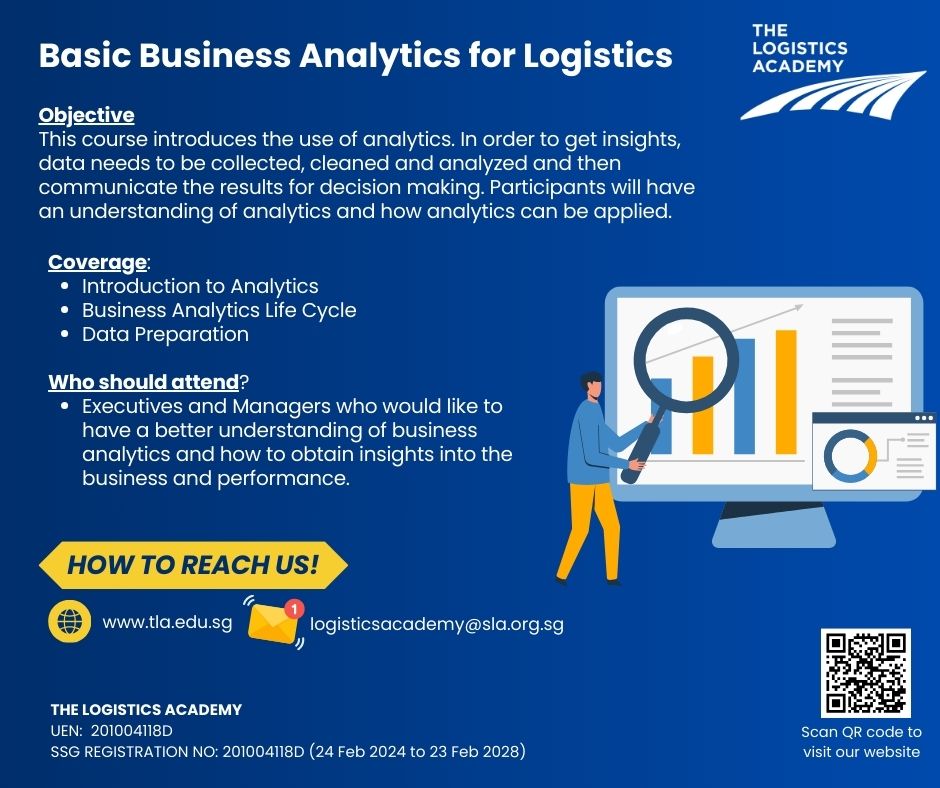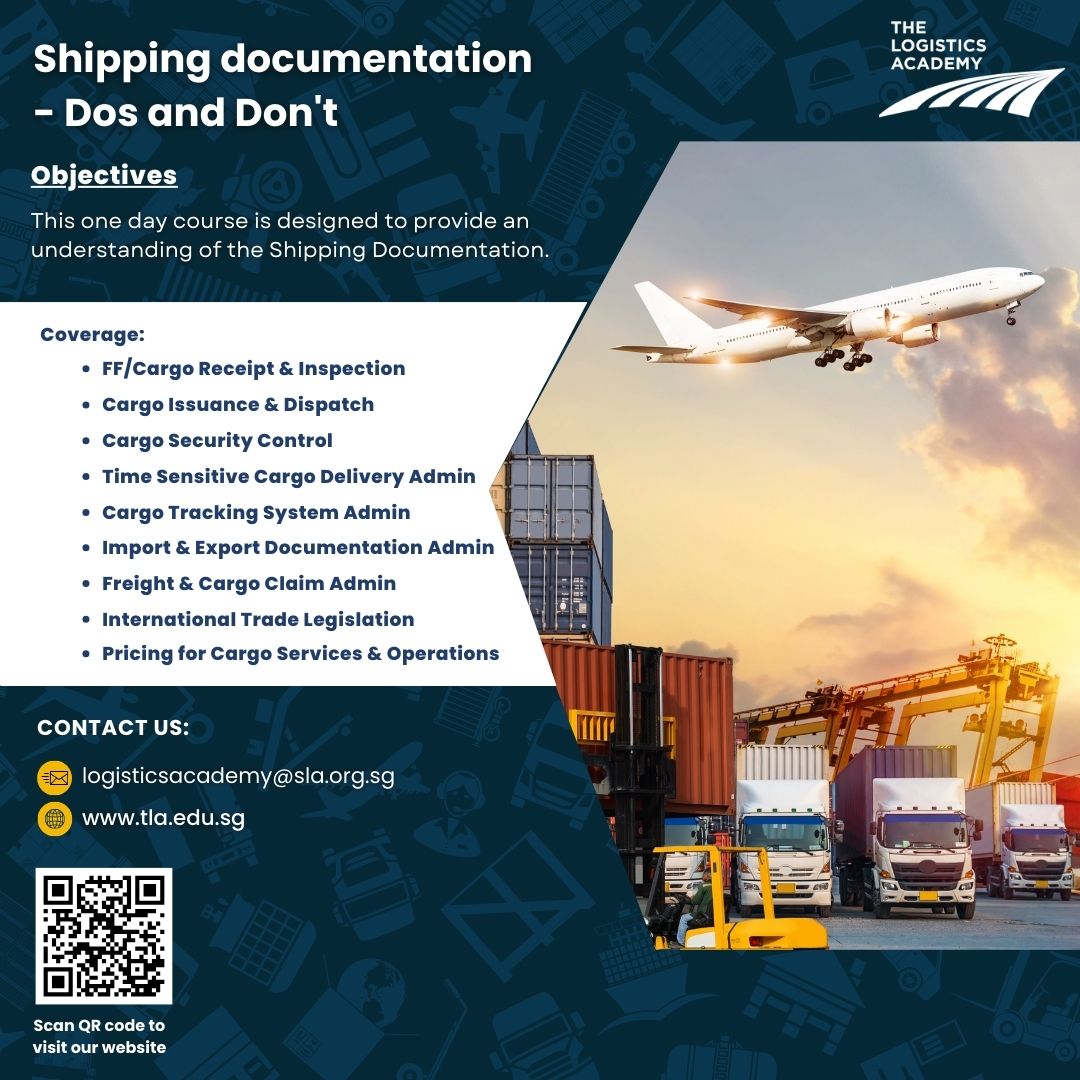Basic Business Analytics for Logistics

- 17 Oct 2025, Intake: 3
- Next year’s Training Schedule — click here for dates (available end Dec or next Jan)
Find out how our participants rate our programmes via TRAQOM here
Objectives
We are living in an age of Big Data and Internet of Things (IoT). The proliferation of data and is growing exponentially within a company and the internet from our digital footprints can tell things that we do not even know about ourselves and the company. Data itself does not contain much value but how do you turn your data into an asset? According to The Economist, DATA is now the most valuable resource. This has given rise to tech giants like Google, Amazon, Facebook and Alibaba whose business thrives on extracting value from data and not physical assets.
The Singapore government is leading the way forward in Digital Transformation and the IMDA is helping companies through its digitalization effort. For some companies, it is not about its success but survival. If a company is not collecting data now and making sense of it, that company is possibly heading for trouble. Making use of data and gaining insights can be a source of Competitive Advantage. For example, Business Analytics can provide insights into the delivery performance if the logistics company is not doing it now or provide customers insights or inventory management performance. From these insights, the company can make decisions on addressing delivery performance failure, target customers with growth potential or perform customer segmentation or reducing its inventory management cost.
This course introduces the use of analytics. In order to get insights, data needs to be collected, cleaned and analyzed and then communicate the results for decision making. Participants will have an understanding of analytics and how analytics can be applied.
There will be hands-on exercises for participants to practice data analysis and also create dashboards. This course will also showcase some of the analytical software available. To facilitate hands-on learning, participants would have to bring their laptops (with Excel 2016 installed) when attending the course.
Designed For
This is targeted at executives and managers who would like to have a better understanding of business analytics and how to obtain insights into the business and performance.
Coverage
The course is customized towards the Logistics Skills Framework Technical Skills and Competencies (TSCs) :
Business Management / Data and Statistical Analytics (level 2 & 3) : Identify data sets for application of statistical techniques to analyze and interpret large complex data to uncover trends or patterns in order to locate and define new process improvement opportunities.
The skillsets and competencies from the course would enable our participants to explore Job Redesign under the JRR (Job Redesign and Reskilling) funding program by WSG.
Section 1: Introduction to Analytics
- Hierarchy Pyramid
- What is Analytics
- Skill set for Analytics
- Applications of Analytics
- Business Analytics as a Competitive Advantage
- Levels of Data Analytics Maturity
Section 2: Business Analytics Life Cycle
- Understand and Identify the Business Issue
- Data Collection and Preparation
- Data Exploration/Analysis
- Modelling
- Validation
- Deploy, Evaluate/Monitor Results
Section 3: Data Preparation
- Why need to perform Data Preparation
- Identify problematic data
- Cleaning Data
Fees
| SLA Member | Non-Member | Self-Sponsored | |
|---|---|---|---|
| Course Fee | $398 | $498 | $498 |
| GST | $35.82 | $44.82 | $44.82 |
| Application Fee (incl. GST) |
$32.70 | $32.70 | $32.70 |
| Total Fee (payable to TLA) |
$466.52 | $575.52 | $575.52 |
Payment
Payment will only be required after the course is confirmed.
(The status of the course would usually be advised one (1) month before the course start date.)
Payment mode (retail payments facilities are not available) :
Overseas – Telegraphic transfer
Local – Bank transfer or Corporate PayNow
Duration
1 day: 9 am to 5 pm
Lecturer

Fabian Wang is a Supply Chain professional with extensive experience in the end-to-end supply chain processes. He graduated with a First Class Honours Bachelor of Engineering degree from the University of Surrey in the United Kingdom and a Master of Business Administration from the Australian National University (ANU). Fabian is also an APICS Certified Supply Chain Professional (CSCP) and also holds the Advanced Certificate in Training & Assessment (ACTA) certification.
Certification
A Certificate of Attendance will be awarded upon successful completion with 75% attendance.
